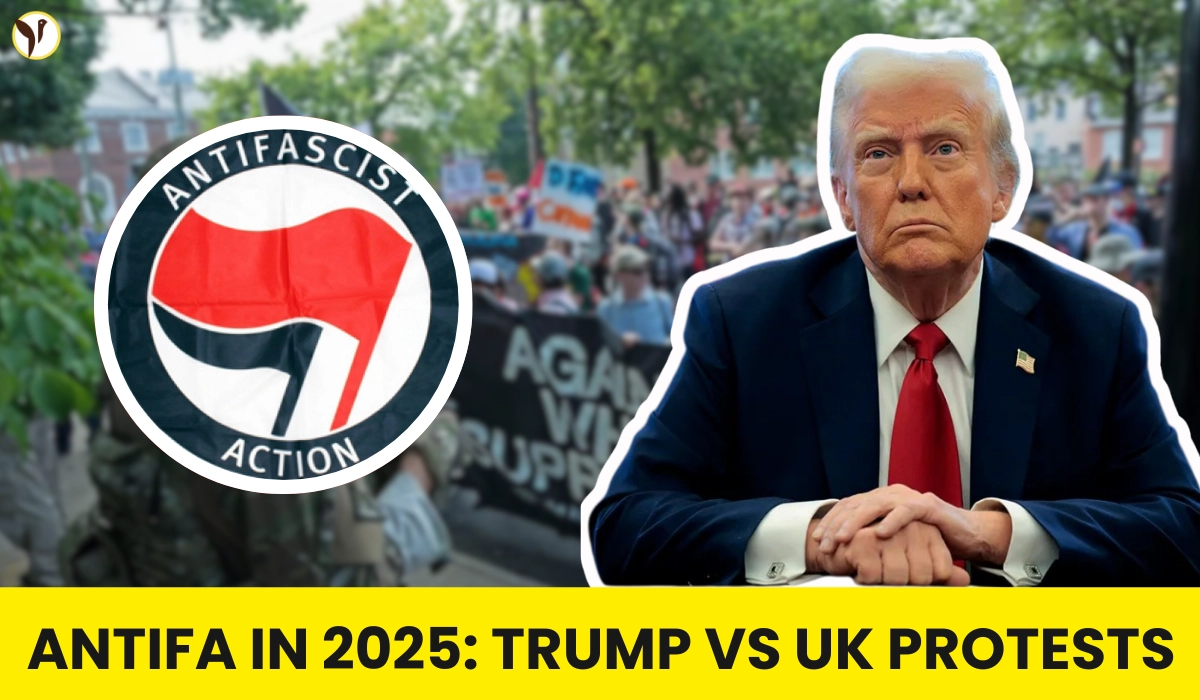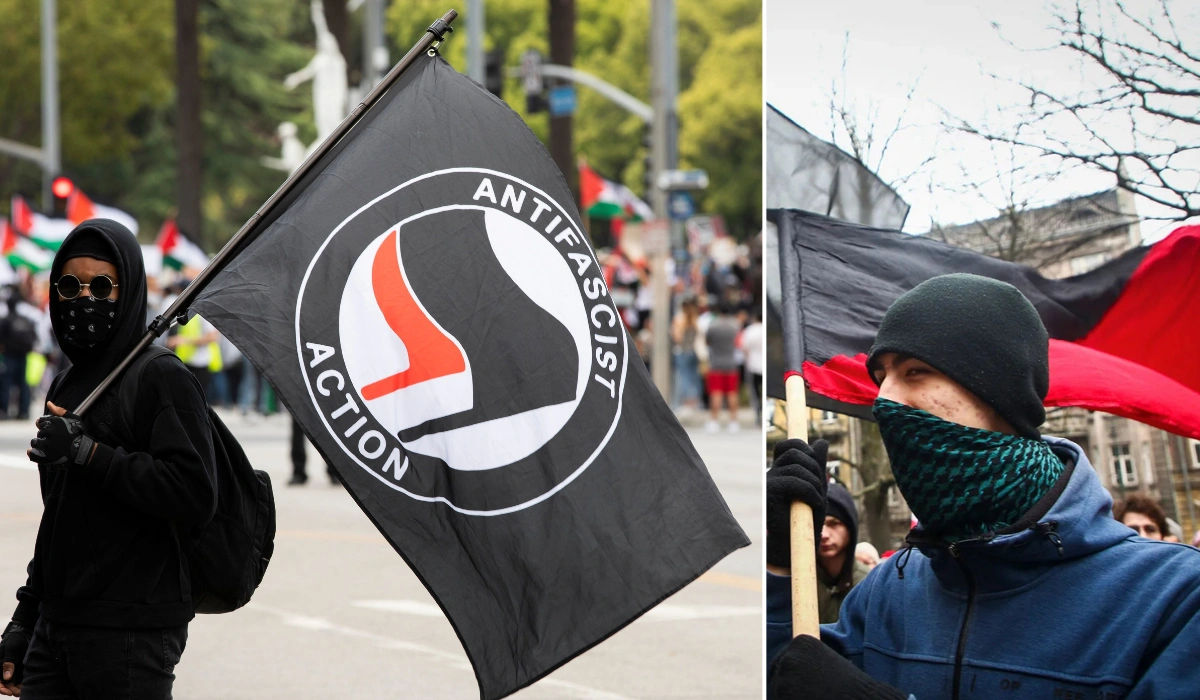In 2025, Antifa, which is short for “anti-fascist,” is once again in the headlines. The renewed media buzz comes after Donald Trump, the former President of the United States, denounced Antifa as a terrorist organization, and a number of protests and rallies in the U.K. have also garnered coverage about the organization and its role in political protests and counter-protests.
The media coverage of influential political leaders who are commenting on these protests and events, combined with public demonstrations, has generated lots of discussion and concern, both online and offline. For many, Antifa serves as an often controversial force of political activism, while for others the level of activity is increased or imagined and Antifa has negligible influence. The increased reporting and social media activity indicates that people are increasingly interested in figuring out who Antifa is, and what they stand for.
What Antifa Literally Stands For
"Antifa" is short for "anti-fascist." The antifa movement is movement without a formal organization with activists sharing an opposition to fascism, racism, and far-right ideologies. The fact that there is no formal organization means that there is no formal leadership or membership, which makes it difficult to trace their actions or blame a specific entity.
Because Antifa is historically decentralized, groups have organized protests, taken to the streets to organize as communities, and have at times engaged directly with far-right organizations. It is important to recognize, however, that Antifa's tactics and visibility differ between areas, and they primarily focus on confronting authoritarian and extremist organizations that they oppose. Further, it's decentralized nature means that Antifa is often controversial, with its supporters labeling the organization as a grassroots anti-fascist organization, while its critics label it as a vehicle for unrest.
Trump’s Declaration and Reactions
The 2025 announcement by Trump to designate Antifa as a terrorist group has brought domestic security and political activism back into the conversation. Proponents suggest the federal designation will assist law enforcement in responding to violence at protests, while those opposed to it believe a loosely affiliated group should not be classified as a domestic terrorist group for political reasons, highlighting the legal and civil rights implications of the designation.
In the UK, authorities and media organizations have been scrutinizing Antifa’s involvement at earlier rallies and protests, including the 'Unite the Kingdom' protests, to help inform their decision on policing and public safety, as Antifa activists joined as counter-protesters against the far-right moving in the area. This has ignited discussions about public safety, free speech, and policing.
Analysts agree that while the movement is being seen in protests, they have cautioned in regard to the threat of Antifa’s revival and it being called a terrorist movement is often embellished in political discourse. Public opinion is also split in the U.S. and UK, in regard to whether Antifa is harmful to public safety or a necessary force against extremism.
I am ANTIFA.
— Brian Krassenstein (@krassenstein) September 18, 2025
MEANING I AM AGAINST fascism. All Americans should be. ANTIFA is not an organization.
Domestic groups also cannot be formally designated as “terrorist organizations” under U.S. law.
Trump did not have legal authority to unilaterally designate Antifa as a… pic.twitter.com/u4klyCt029
Looking Ahead: Legal, Social, and Political Implications
The focus Antifa received in 2025 exemplifies the difficulties that governments must grapple with when balancing between public safety, civil liberties, and freedom of expression. Legal scholars contend that branding a decentralized movement as a terrorist organization may be difficult if an investigative agency is faced with the limits of prosecution.
In parallel, media reports, and social media conversations, continue to shape public understanding of protests, counter-protests, and political activism. For observers, the focus on Antifa also provides an opportunity to understand more fully grassroots movements, the dynamics of political dissent, and activism's role in contemporary society.
Image(s) Source: www.newsonair.gov.in , www.britannica.com










